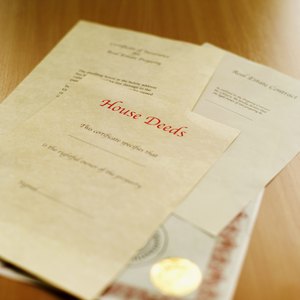
Recording your deed after a real estate transfer is not mandatory. However, it is very desirable for a number of reasons. By recording your deed, you provide public notice to all interested parties that you are the rightful owner of the property. This will be very important in the event of a title dispute. It will also be helpful if you or your heirs ever decide to refinance or sell the property. Title companies will not insure a property with a break in the chain of title.
Recording Acts
Many states have enacted recording statutes as an incentive to an owner to record any transfers concerning his property. These statutes help settle conflicts of ownership in real property by prioritizing documents of ownership. However, the order of priority depends on the type of statute that your state has adopted. The statutes are identified as either "race," "notice," or "race-notice."
Here is Legal Match's description of the three types of notices: (a) Race statutes are simply a first come, first served method of recording. The individual who records first is presumed to be the rightful owner of the property, and has priority over any subsequent recordings. (b) Pure notice statutes provide that if a purchaser of real property for value (also known as a "bone-fide purchaser") records a deed that does not include a notice that there are any conflicting interests in title from non-purchasing individuals such as heirs, he will win a challenge to his claim of ownership. (c) Race-Notice statutes specify that for a purchaser to win a title challenge, he must not only have no notice of any conflicting interest, but he must also record first.
How to Record Your Deed
Your deed should be recorded in the county where the property is located. To be accepted for recording, it must be notarized. Once recorded, your deed will be entered into your county's Deeds of Record.
Why Record
Redecoration does not affect the validity of a deed. However, in some jurisdictions, an unrecorded deed could prove to be a hindrance to your establishing title in a clear title action if a challenge to your property ownership occurs.
Recording also provides a chain of title for the property. If your deed is not recorded, it will cause a break in that chain.
Common Law Recording Notice
States that have not enacted recording statutes will default to "common law" in deciding cases involving competing ownership of real property. At common law, the rule is "first in time, first in right," which is very similar to the "race statute" jurisdictions.
References
Writer Bio
Yvonne Cousar has a Bachelor of Arts in English literature. She has 30 years experience as a paralegal and eight years as a realtor.

